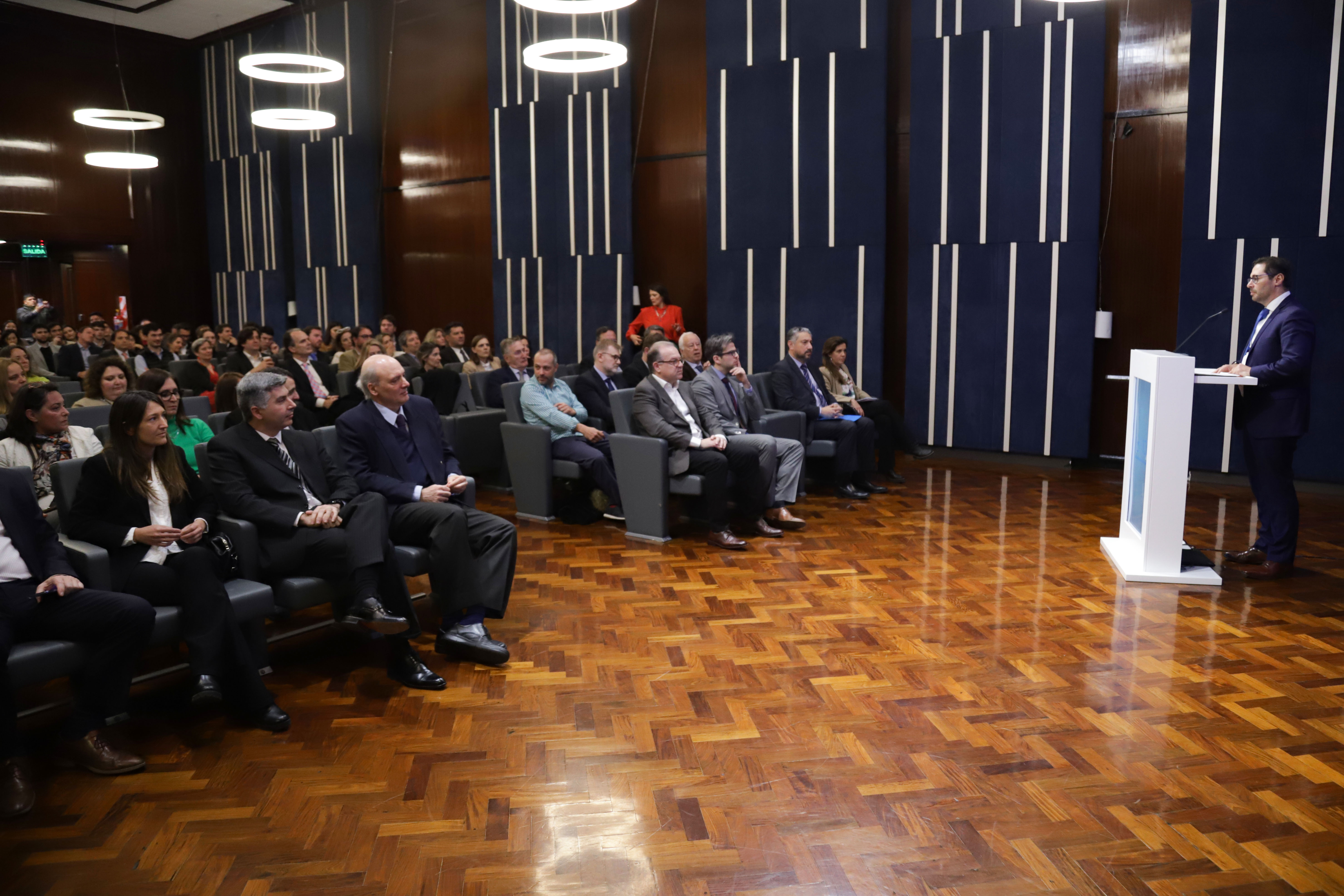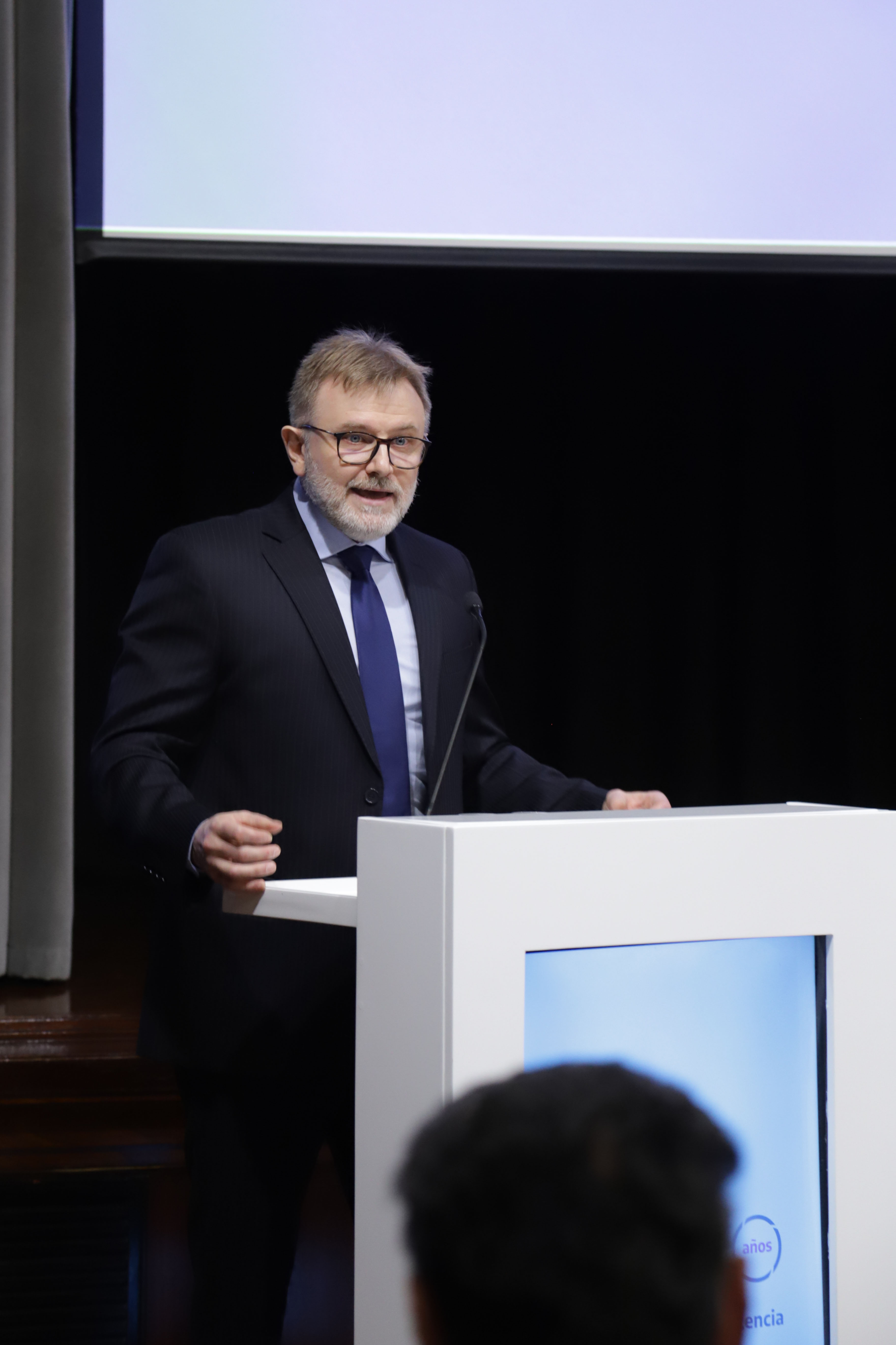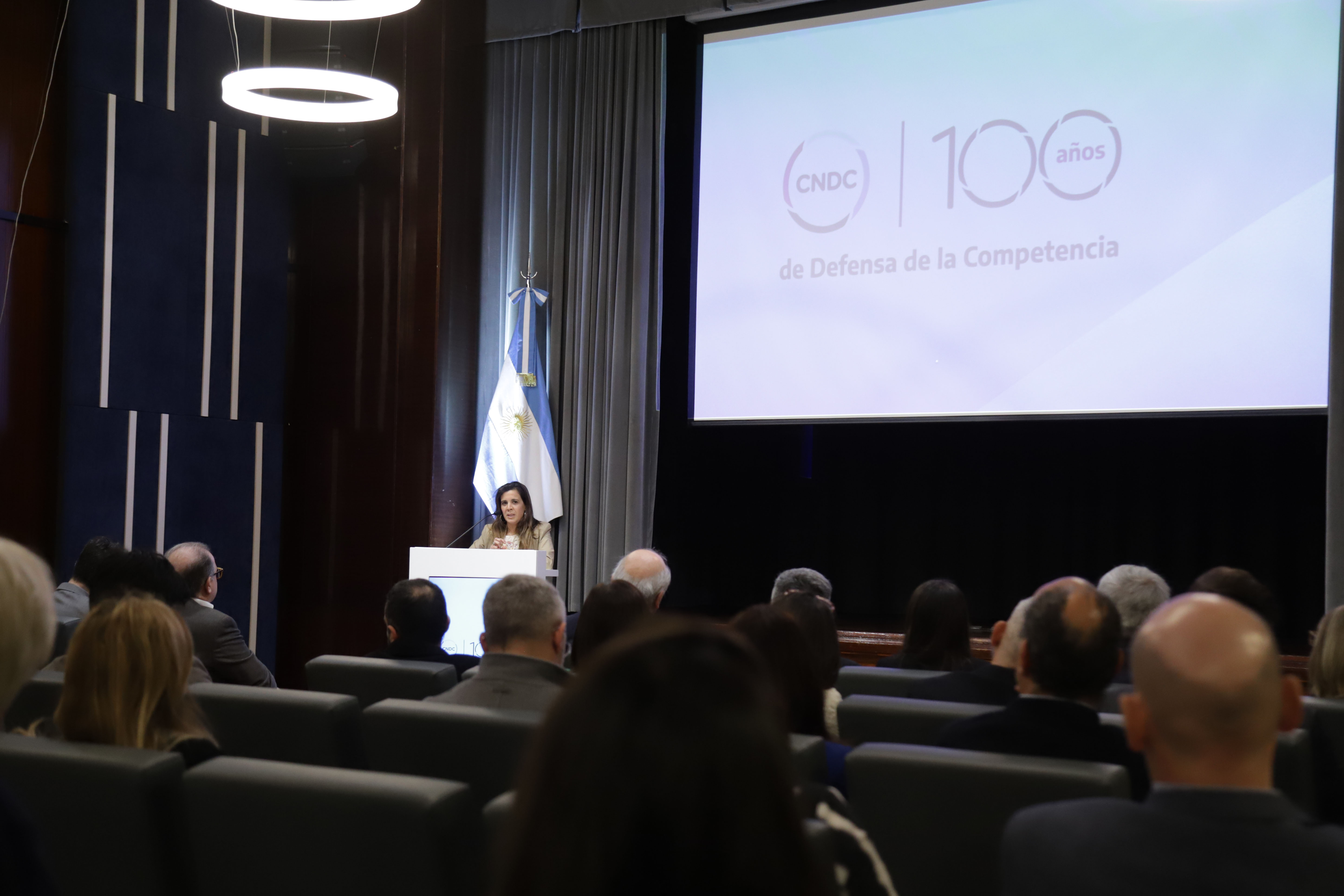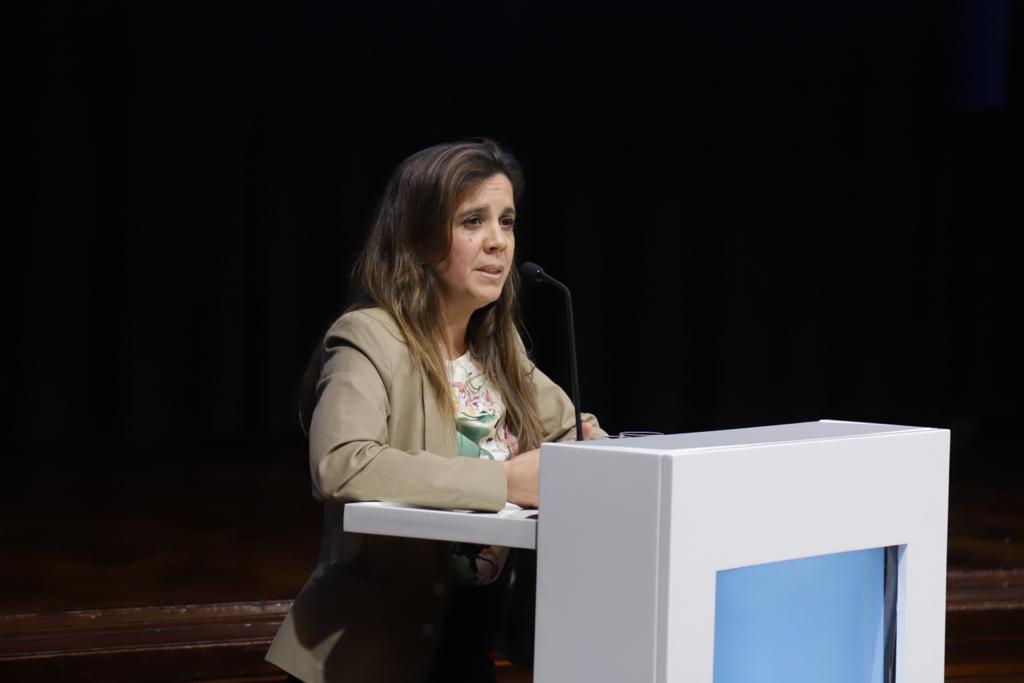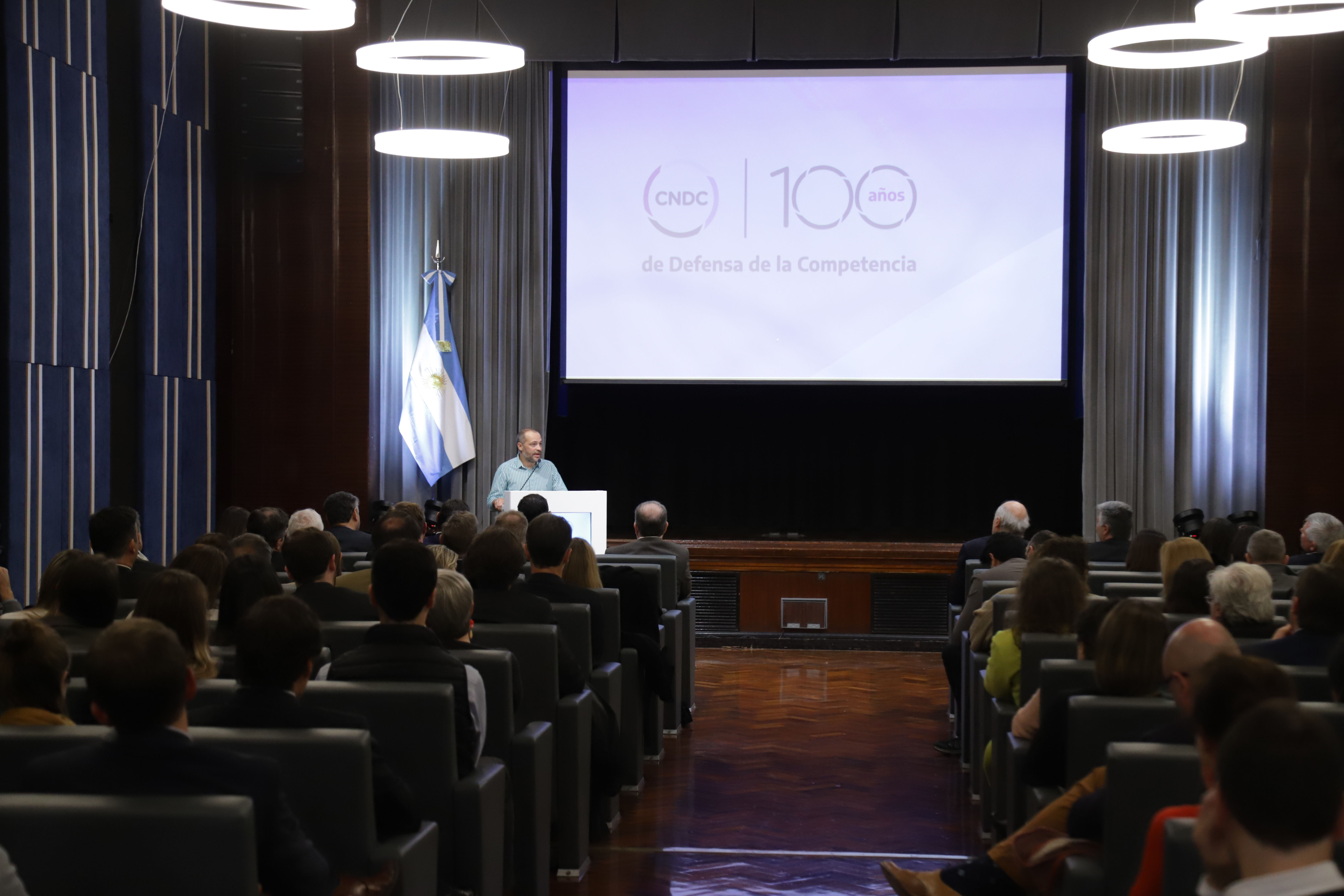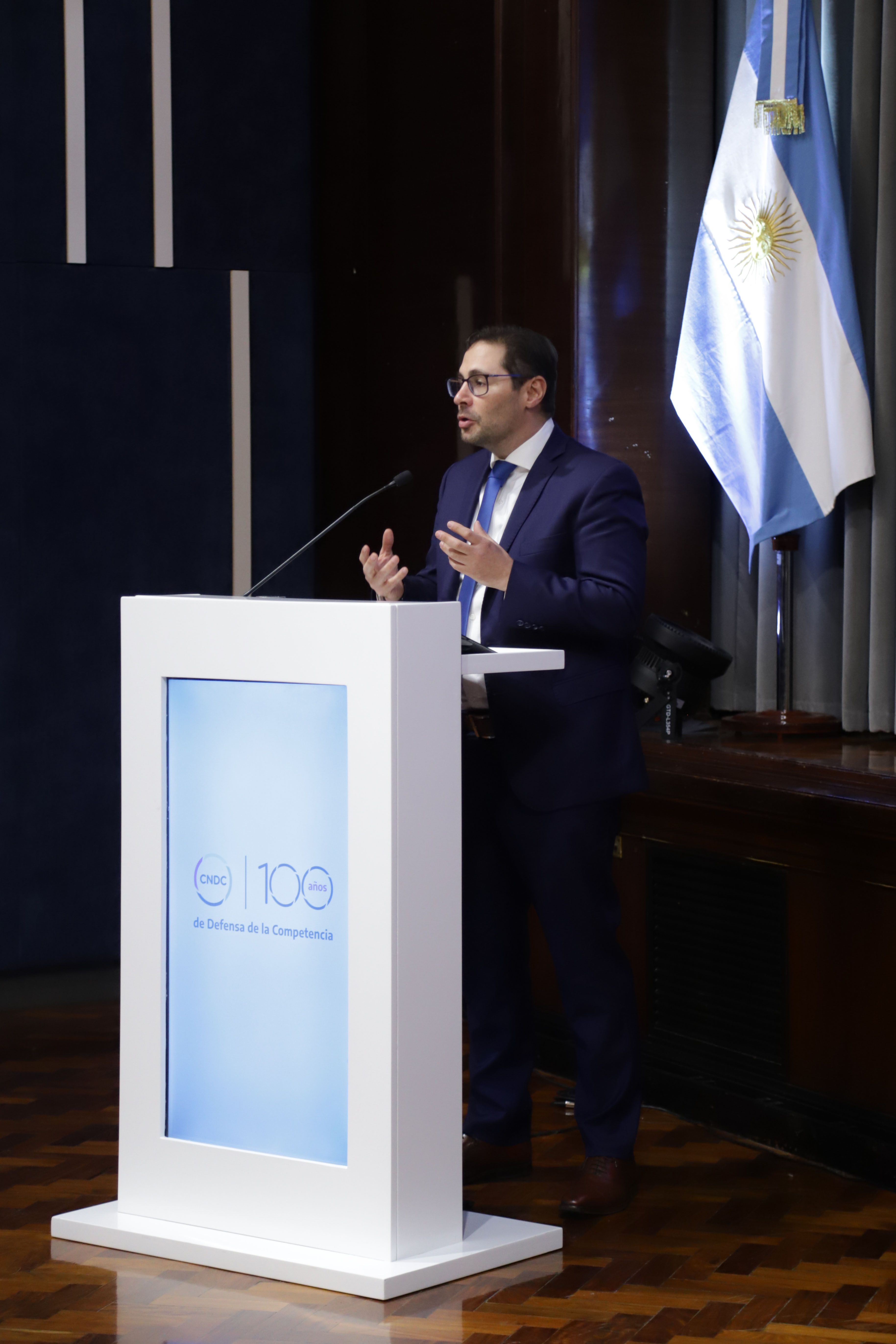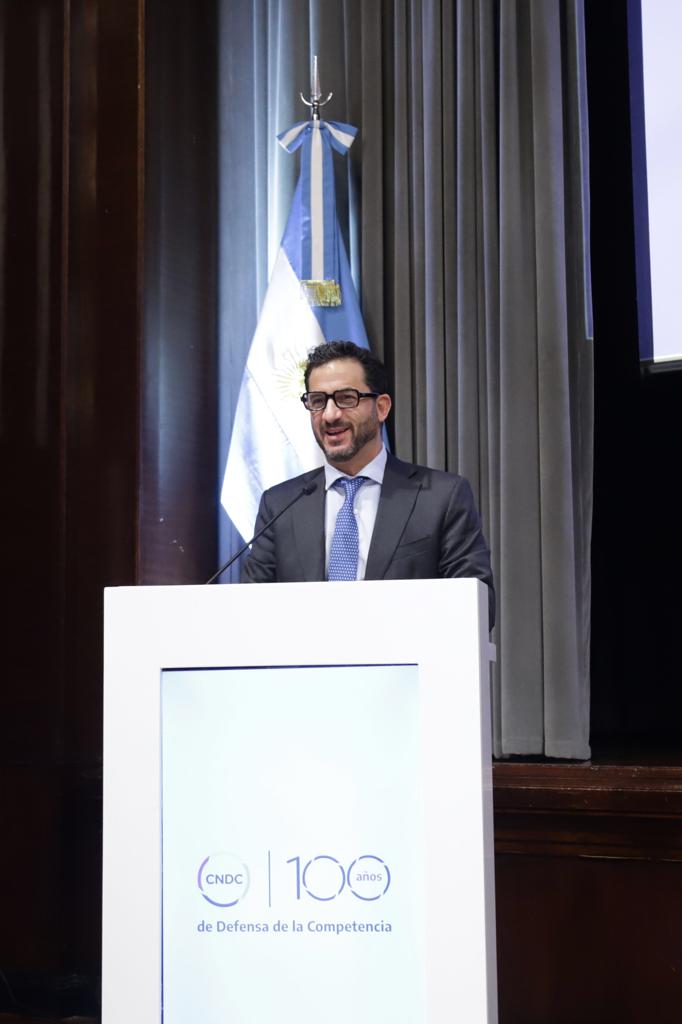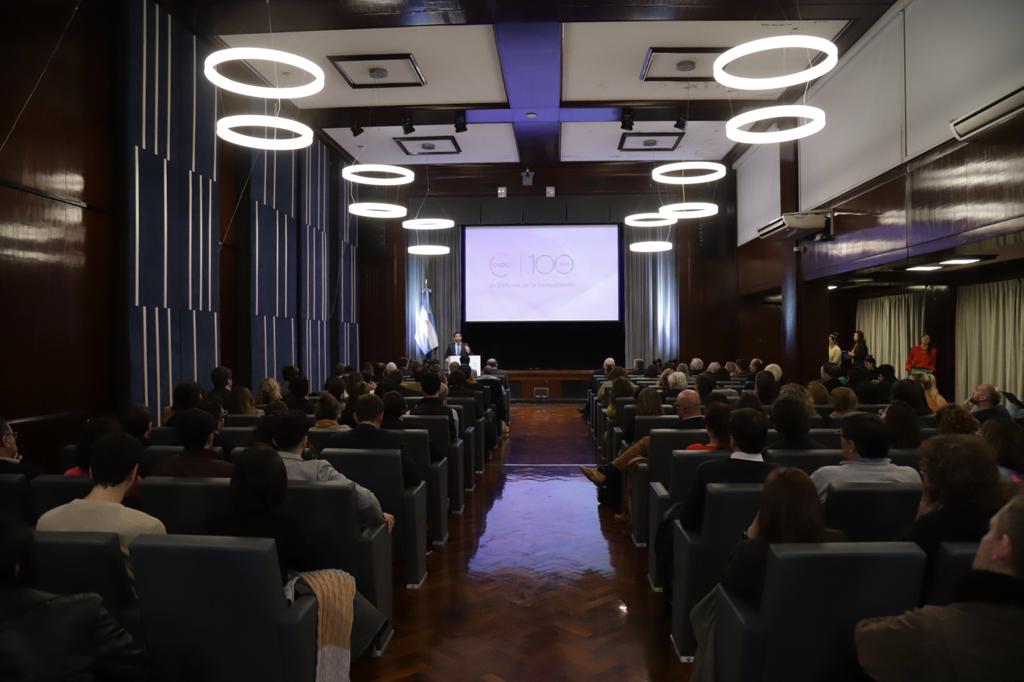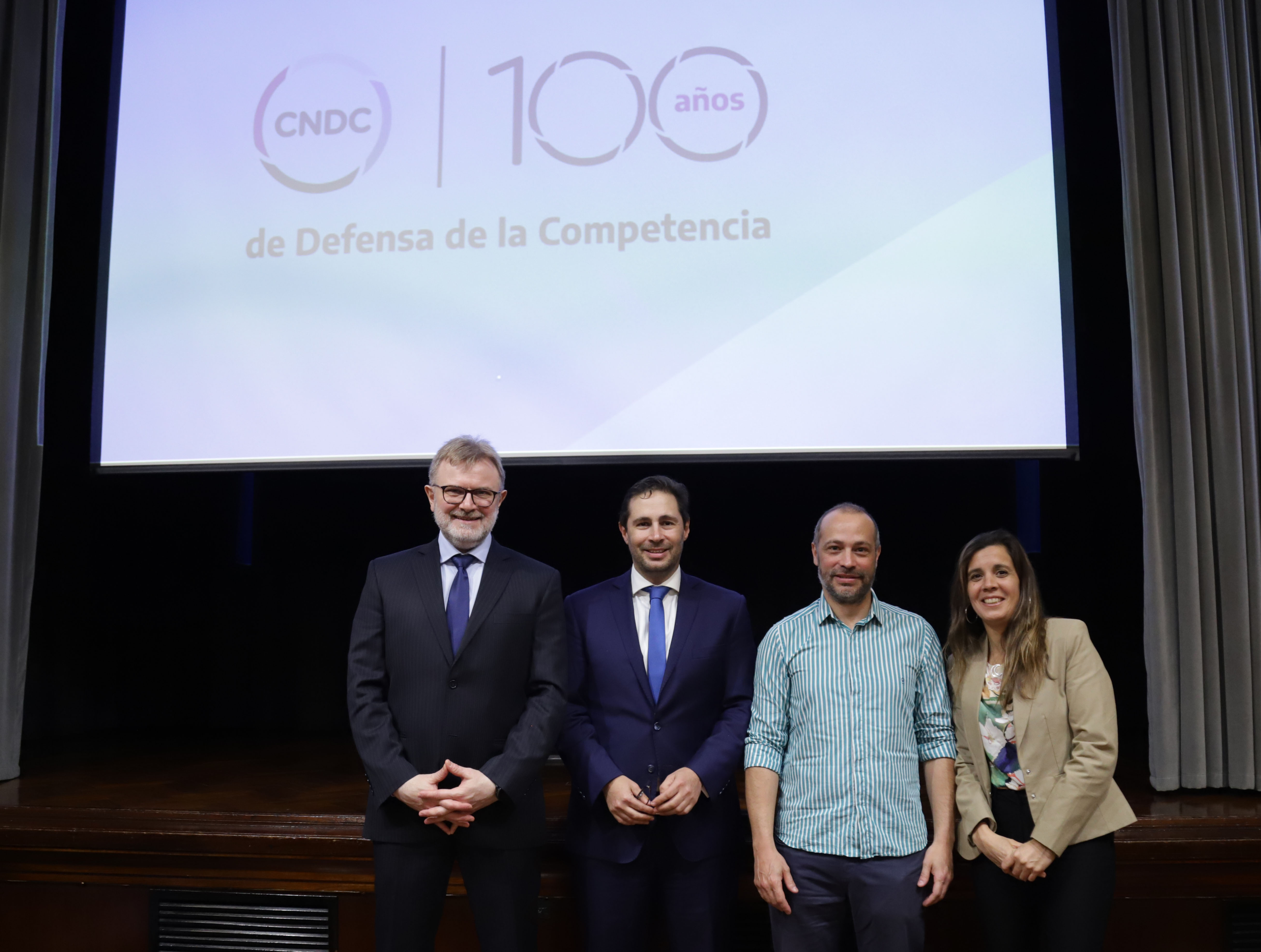The National Commission for the Defence of Competition (CNDC, for its acronym in Spanish) commemorated the centenary of the enactment of Act No. 11.210, considered the first specific regulation for the defence of competition in Argentina and Latin America. The event was attended by the authorities and the entire CNDC team, former officials and members of the authority, lawyers and economists who work closely with the organism, as well as other professionals specialised in antitrust. The event was also attended by Leonardo Madcur, Chief of Advisors of the Ministry of Economy, and Matías Tombolini, Secretary of Commerce.
The authorities of the CNDC, together with prominent practitioners in antitrust, took stock of the first 100 years of the application of competition law at the national level.
Pablo Lepere, lawyer and Commissioner of the CNDC, shared some reflections on the institutional challenges of the competition authority. Balbina Griffa, economist and Commissioner of the National Commission assessed the implementation of objection reports in the procedure of analysis and control of economic concentration operations. Guillermo Pérez Vacchini, economist and Commissioner of the CNDC, referred to the general economic interest, the good protected by Act No. 27.442 on Defence of Competition (LDC), and the objectives of competition policy.
Guillermo Cabanellas de las Cuevas and Marcelo Celani, two prominent professionals specialised in competition, spoke on the insertion of antitrust in the Argentine constitutional system and on the impact of the technological revolution on the sector, respectively.
Rodrigo Luchinsky, President of the CNDC, closed the presentations with some perspectives on the future of competition. The final words of the event were given by the Secretary of Commerce.
Act No. 11.210, also known as "Repression of Speculation and Trusts", came into force on August 23rd, 1923. It was inspired by the American regulations on the prosecution of monopolies, particularly the US Sherman Act, passed 33 years earlier. It was a criminal law that declared as a crime any act aimed at establishing or sustaining a monopoly and profiting from it, and identified a series of punishable conducts such as price agreements, limits on production, price predation or destruction of goods.
In the following link, you can watch a video that narrates the evolution of Argentine regulations aimed at combating monopolies and defending competition in the markets over the last century.
